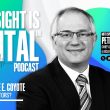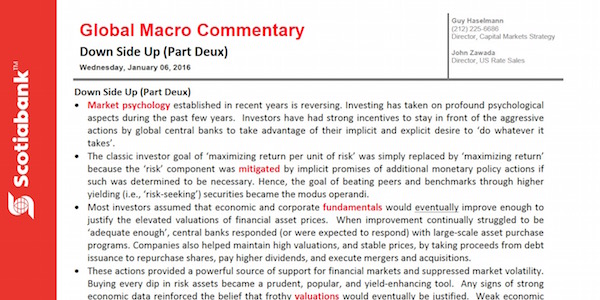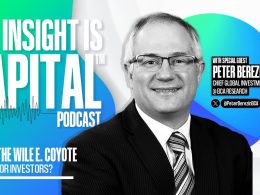ETFs a low-cost investment choice with many long-term benefits
By Marjo Johne
With close to $3-trillion in global assets under management, exchange-traded funds have grown into a popular choice for investors since they were created 25 years ago. In Canada, ETFs account for more than $84-billion in investment dollars according to the Canadian ETF Association.
But while these numbers sound impressively large, ETFs still have a long way to go before they catch up with other investment products. Mutual funds, in particular, remain a preferred investment vehicle among many Canadians. About $1.22-trillion of assets under management in the country are held in mutual funds, which account for more than 30 per cent of Canadian’s wealth.
Personal finance and investing experts say Canadians who choose to forego ETFs in favour of mutual funds are losing out on opportunities to get more out of their investments.
“When you're choosing your investments, costs are very, very important, especially in the low-interest rate environment we live in today,” says Jason McIntyre, head of distribution for Vanguard Investments Canada Inc., part of the Vanguard Group Inc., a global investment company with more than 20 million clients worldwide. “Over time, the fees you pay can have a significant impact on your portfolio.
Like mutual funds, ETFs give investors access to baskets of securities that focus on particular markets or market segments. Both types of products also pool individual investors’ money to achieve more buying power and, ultimately, greater diversification.
But ETFs and mutual funds diverge when it comes to fees, with a difference that can translate to tens of thousands of dollars in investment gains or losses.
Vanguard ETFs, for instance, have management expense ratios that range from 0.09 per cent to 0.39 per cent. Also known commonly as MERs, these ratios represent the total percentage of assets that are used each year to cover the costs of managing and administering a fund.
“By comparison, mutual fund fees average at over two per cent,” says Atul Tiwari, managing director at Vanguard Investments Canada. “Over time, higher fees compound to take a bigger chunk of your return.”
Of course, investors can get access to F series mutual funds. F series funds are designed for fee-only accounts and separate out the trailer fee from the MER. However, while they are less costly than other mutual fund series, they are still generally more expensive than ETFs. The average MER for ETFs is less than half the over one per cent average MER for F series mutual funds, according to Investor Economics.
While ETFs charge fees to cover operating expenses, they tend to have lower MERs than mutual funds because the latter products are largely actively managed. Most ETFs are passively managed funds that track the movement of a specific index or market. There are generally no trailing commissions on ETFs – Vanguard’s ETFs have none – although brokerage commissions sometimes apply.
ETFs also cost less to maintain because they have a lower administrative burden than mutual funds, which must maintain individual shareholder records. Investors who put their money into ETFs may also enjoy tax advantages not offered by a mutual fund because ETFs typically have less portfolio turnover, which means fewer capital gains distributions.
A report released earlier this year by the Canadian Centre for Policy Alternatives cited 2.1 per cent as the average mutual fund MER, with the cheapest equity funds coming in at 1.1 per cent. While CCPA’s report refers to ETFs only a few times, its comparison of mutual funds versus workplace pensions – which have an average MER of 0.38 per cent – illustrates the importance of fees in the long-term performance of an investment portfolio.
In a scenario that looked at the outcome for two individuals after being invested for 40 years each in a fund earning 6.2 per cent yearly, the CCPA found that the individual who invested in a mutual fund had $300,000 less in her portfolio than the investor with a workplace pension.
“Investments are unlike other consumer products such as cars or TVs, where people think the more you pay the more you get,” says Mr. Tiwari. “With investments, the opposite is true, and many studies have shown that the best predictor of future good results is the cost of your investments.”
To learn more about Vanguard ETFs, visit www.vanguardcanada.ca/individual/etfs/etfs.htm.
This post was originally published at ETF World Magazine Canada
















